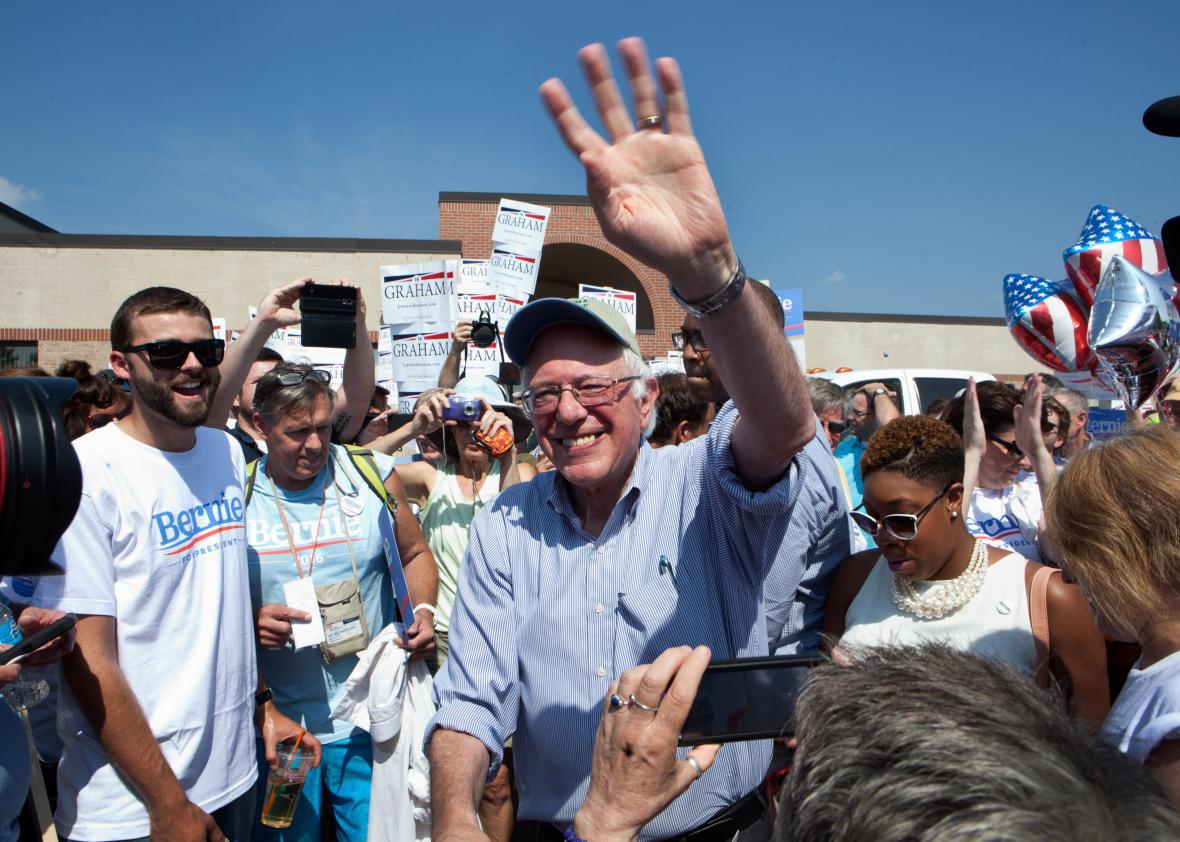As we venture deeper into election season, here’s a guiding principle for thinking about the contest that I feel everybody should keep in mind: For the most part, Hillary Clinton’s and Bernie Sanders’ economic ideas don’t matter very much. The Republican candidates’ economic ideas, however, are vitally important.
I say this because, at the moment, the Democratic primary seems to have largely turned into a contest about policy vision. Bernie Sanders has thrilled his party’s left by campaigning as the one true progressive, while Hillary Clinton has tried to position herself as just the slightest bit more grounded. He stumps for a $15 minimum wage; she says $12 might be more prudent. He wants to make our public colleges tuition-free; she just wants to make sure students can attend them debt-free. He talks about breaking up banks and taxing Wall Street trading; she thinks we should hike capital gains taxes a bit and try to make investors think more about the long term. And on and on.
These issues are all worth discussing, both because they give the candidates something with which to excite voters and because debates about them today could potentially shape the Democratic agenda years down the line. But in terms of real world consequences, Sanders’ and Clinton’s often sweeping proposals (and yes, even Clinton’s are sweeping) are basically irrelevant for the foreseeable future. That’s because there is almost zero chance that, come January of 2017, Congress will be willing to pass any them.
A brief look at the electoral math makes that much clear. At the moment, Republicans control both chambers on Capitol Hill. To take back the Senate, Democrats would need to pick up a minimum of four seats—which, while conceivable, would involve a little luck. To reclaim the House, however, they will have to flip 30 seats, which no American political party has managed to do during a presidential election since Ronald Reagan led the Republican charge in 1980. Nothing currently suggests the Democrats will replicate that kind of magic. Unless an unexpected liberal wave materializes, a President Clinton or Sanders will be stuck grinding through the same legislative gridlock that the Obama administration has coped with for going on five years now. Given that midterms usually reward the opposition party, the best progressives can realistically hope for is that the elections of 2020 finally bring Democrats back into total control over Washington—but even then, Republicans may be able to gum things up through the filibuster.
Some of the policy differences between Sanders and Clinton still matter a great deal. A Democratic president will still control foreign affairs and trade negotiations. (Sanders might be the first significant Democratic contender in recent memory who actually means it when he says he wants to reverse NAFTA, though it’s not clear he can do much about it without Congress’ consent.) They’ll also be able to exercise lots of power through regulatory action, especially on issues like the environment and climate change. Each candidate would manage these levers in his or her own way. But as of now, neither is really making their pitch to voters based on how they’d govern in the face of a completely antagonistic legislature.
The flip side of all this is that, while a Democratic president will likely have to make deals with at least one Republican chamber in Congress, any electoral environment friendly enough to conservatives to hand Jeb Bush or Marco Rubio or Donald Trump the presidency will probably also guarantee GOP control of Capitol Hill. If that’s the case, the party will be in a powerful position to enact many of the radical tax and spending cuts that it has been pushing throughout the Obama era.
Jonathan Chait made many of these same points back in June when he argued that the central policy issue of this entire election should be the Ryan budget, which both Jeb Bush and Marco Rubio have supported. But, somewhat surprisingly, Chait actually undersold the stakes. The key thing to remember is that Republicans can implement large chunks of their agenda with just 51 votes, thanks to the budget reconciliation process. This is the parliamentary maneuver that essentially prevents the minority from filibustering budget-related bills. You may recall that Democrats used it to make the final push on Obamacare after Ted Kennedy passed away. Likewise, the Bush administration relied on it to pass its massive tax cuts without mustering 60 votes.
Because its use is restricted to budget matters, Republicans probably could not enact their entire agenda through reconciliation—it would be hard, for instance, for the GOP to fully repeal and replace Obamacare using it. But they could certainly wield reconciliation to make massive cuts to safety-net programs like Medicare and Medicaid, as envisioned by Congress’ most recent budget resolution, while passing large tax reductions of the sorts Bush, Trump, and Rubio have all advocated. If a Republican is elected president and feels compelled to eliminate $500 billion in health spending for the poor while slashing top tax rates for the wealthy, a Democratic congressional minority may well be helpless to stop it.
This is why the policy proclamations that the GOP’s contenders are making now actually matter a great deal. In any world where one of them occupies the Oval Office, they will likely have the power to reshape American government in fundamental ways. Thus, the fact that Bush and Rubio probably have a more austere vision than Trump is somewhat relevant to the future of this country. In contrast, Sanders and Clinton are basically running for the privilege of defending the surprisingly fragile progress Democrats have made building the welfare state. Their thoughts on how to enhance it further aren’t of much consequence.
